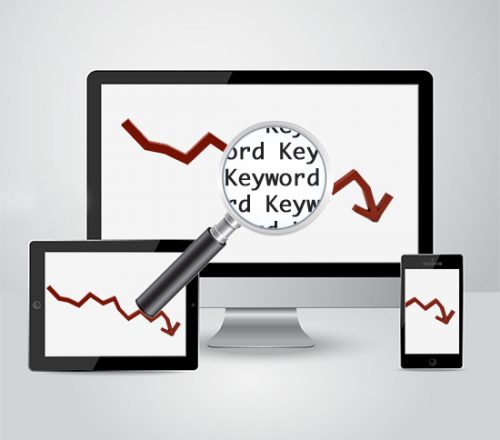Sudden ranking losses may have various reasons. In our multi-part series of articles möchten we would like to inform you about what the causes for a ranking crash can be in detail. But first, it’s important to grasp the situation as a whole… if possible.
STEP 1: FIND OUT, WHERE WE ARE LOSING.
To find out exactly when the Google ranking losses occurred, there are two ways. Which method is the more useful, the SEO makes dependent on two criteria:
1. THE URL STRUCTURE IS CREATED IN DIRECTORIES
If the URL structure is logically divided into directories, a common analysis is sufficient to detect changes in the ranking. In the standard analysis, individual directories and hostnames are examined using tools such as Searchmetrics or Sistrix. If the URL structure is created in traceable directories, changes can be identified easily and quickly. How to analyze the crash of a domain with Sistrix is explained in more detail in a short tutorial from Sistrix below:
2. NO SENSIBLE DIRECTORY STRUCTURE IS RECOGNIZABLE/DIRECTORIES LOSE EVENLY
If the URL structure is not created in directories or the directories lose evenly, Excel and export functions can be used to determine if the ranking crash also affects the traffic. The most helpful is to make an export of all Google rankings before and after the loss using the well-known SEO tools. These are then merged with =SVERWEIS or Power Query and supplemented with everything that can be useful.
For example, columns for the directories, categories, topics or tags, page type, categorization of keywords or comparison of traffic before and after the crash (for seasonal areas: compared to the previous year) are highly recommended. It makes sense to additionally follow your inner intuition and create columns with criteria that could provide further information. As always, the more data, the better.
Part 3 will follow shortly and will deal with the handling of the affected keywords












